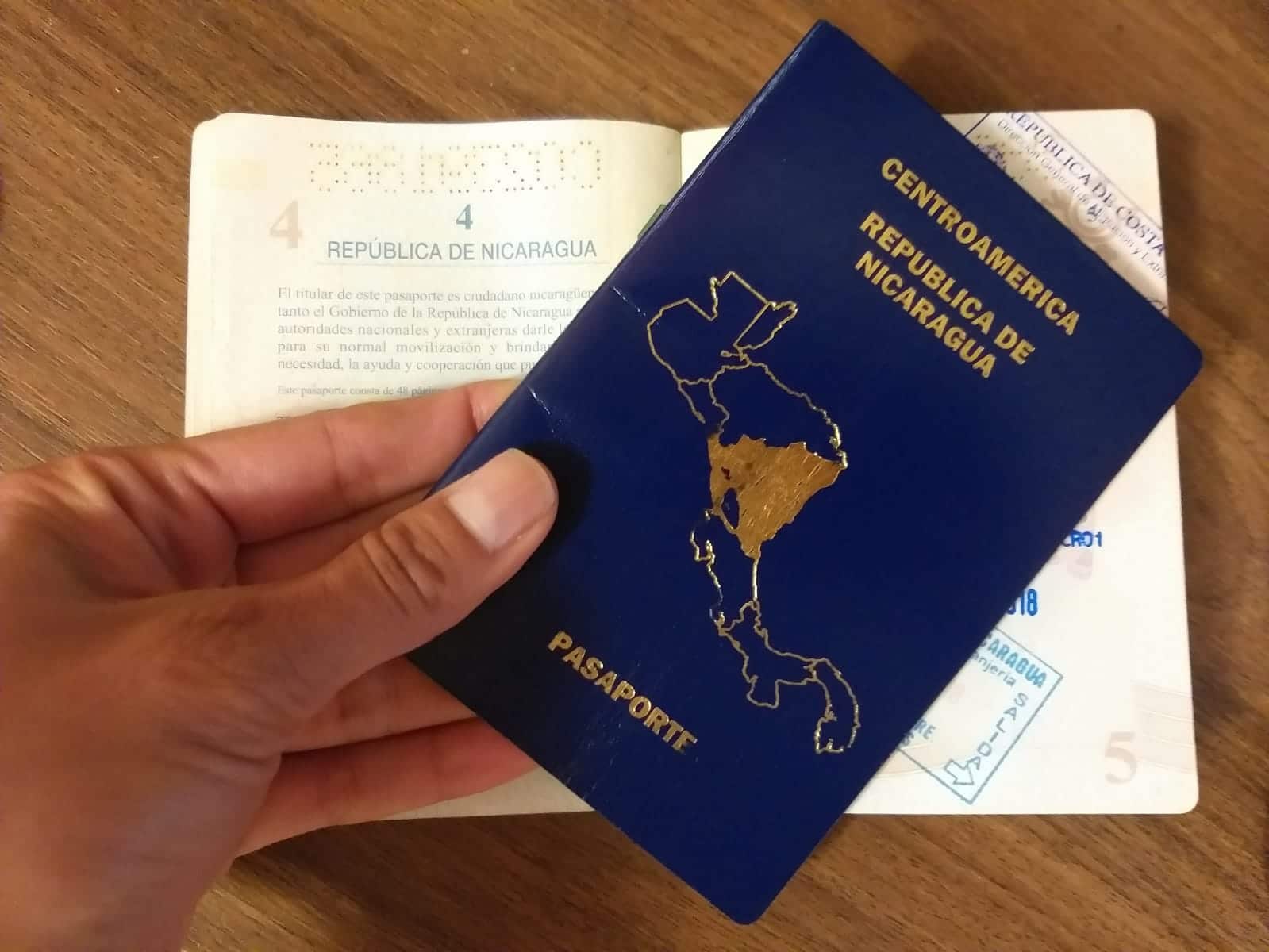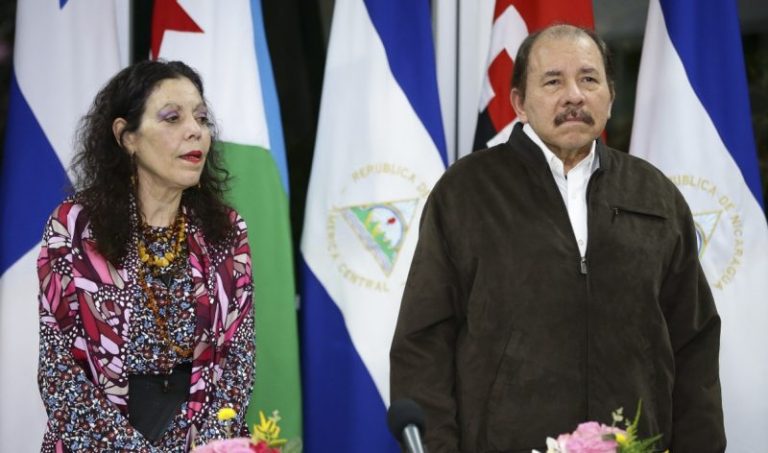25 de enero 2021

Nicaragua: Public Employees Hindered from Traveling to USA

PUBLICIDAD 1M
PUBLICIDAD 4D
PUBLICIDAD 5D
The president called for "a great national dialogue" after the general elections, and prescribed life imprisonment for alleged terrorists

Vicepresident Rosario Murillo blames them for the murders
Daniel Ortega, the president of Nicaragua, said that next November’s general elections are “another task that must be attended to guarantee the continuity” of his government, which this week reached 14 consecutive years in a country that is polarized and in an economic recession.
During a speech of one hour and thirty-seven minutes, the president said nothing about the national and international demand for electoral reforms to guarantee free, transparent, and observed elections. Currently, Ortega and his family exercise absolute control over the Supreme Electoral Council (CSE) and have created a web of punitive laws to inhibit the organized opposition after the April 2018 Rebellion.
Ortega even took the continuity of his regime for granted, and called on the country’s businessmen for “a great national dialogue” after the general elections, with the objective, he said, of “building, in new conditions, the great alliance that we managed to build during that first stage, and that collapsed”. In 2018, the private sector broke its alliance with the government which had existed for more than a decade and was described as an authoritarian corporatist system.
The president, who has been the only presidential candidate in the history of the Sandinista Front, called for the “unity” of Nicaraguans in the face of “a new stage of this revolution”, which, he stressed, will be based on “reconciliation, understanding, and peace”.
Also, Rosario Murillo, vice-president and wife of Ortega, demanded "respect" for the upcoming electoral process and called on Nicaraguans not to allow "foreign agents to try to decide for us".
Minutes before, Ortega asked the president-elect of the United States, Joe Biden, to maintain "a policy of respect and understanding" towards Nicaragua. However, he took the opportunity to criticize the US electoral system.
In Ortega's opinion, the assault on the U.S. Capitol, which took place on January 6, is a sign that "the U.S. electoral system requires profound reforms" and he pointed out that "it has a system that was installed when they had a small white population and many slaves... The principle of the right of citizens to vote is not respected there".
"Let's imagine that here (in Nicaragua) we approve an electoral reform where it is said that the votes of the majority of the citizens in an election are not decisive, but that the delegates will decide according to the population of each department of the country. There is nothing democratic about that", he reasoned.
He reproached the United States for having sold "the idea of a perfect democracy, when in reality it is a dictatorship, a bipartisan dictatorship determined by economic power, by the power of large companies, which are in charge of manufacturing cannons, air means, all in the function of the arms race".
Although Ortega dedicated most of his speech to criticize the United States and recite verses by poet Rubén Darío, the President finally made clear that the approval of the constitutional reform to establish life imprisonment in Nicaragua, which will be ratified in the National Assembly in the next weeks, is a measure to “punish” what his regime qualifies as “acts of terrorism”.
When the government proposed the initiative to establish life imprisonment in Nicaragua, it assured that it was to punish "hate crimes", referencing the femicides of minors. Now, however, Ortega speaks of “terrorism”, when his government has accused, prosecuted, and convicted dozens of opponents who participated in the April Rebellion for that alleged crime.
Between 2018 and 2019, the Ortega regime convicted hundreds of protesters for the crime of terrorism, who were beaten and tortured in the National Penitentiary System, as corroborated by the Inter-American Commission on Human Rights (IACHR) before it was expelled from the country in December of that year.
According to Ortega, acts of terrorism and hate crimes "cannot be repeated in this country". He assured that " in Europe, they apply the death penalty for terrorism, we go with life imprisonment", the president stressed.
In 2018, “they threw themselves against a law, that was the pretext”, Ortega stated, "but in reality, they were throwing themselves against a (government) program that had been consolidating".
This article has been translated by Ana María Sampson, a Communication Science student at the University of Amsterdam and member of our staff*
Archivado como:
PUBLICIDAD 3M
Confidencial es un diario digital nicaragüense, de formato multimedia, fundado por Carlos F. Chamorro en junio de 1996.
PUBLICIDAD 3D